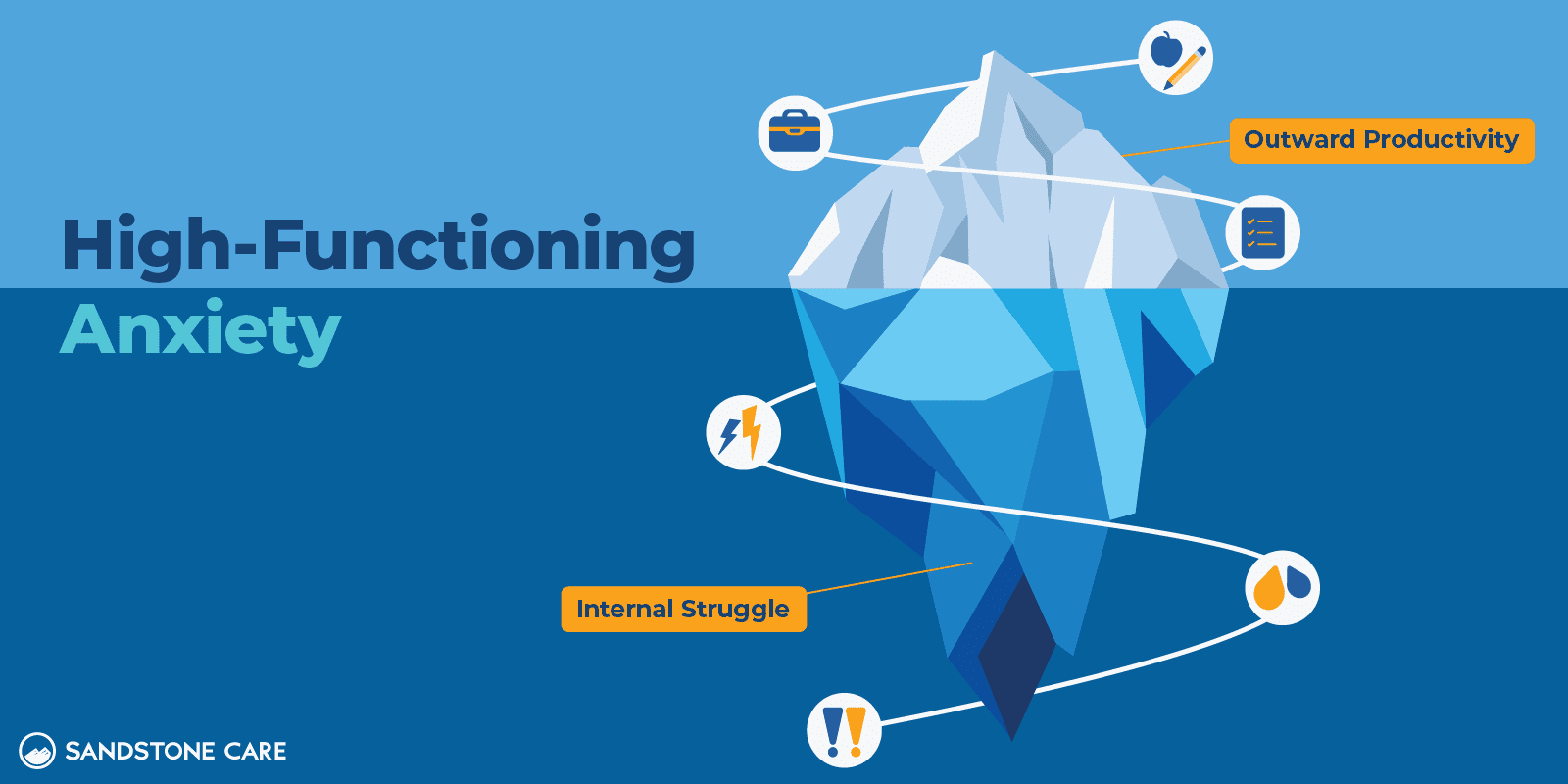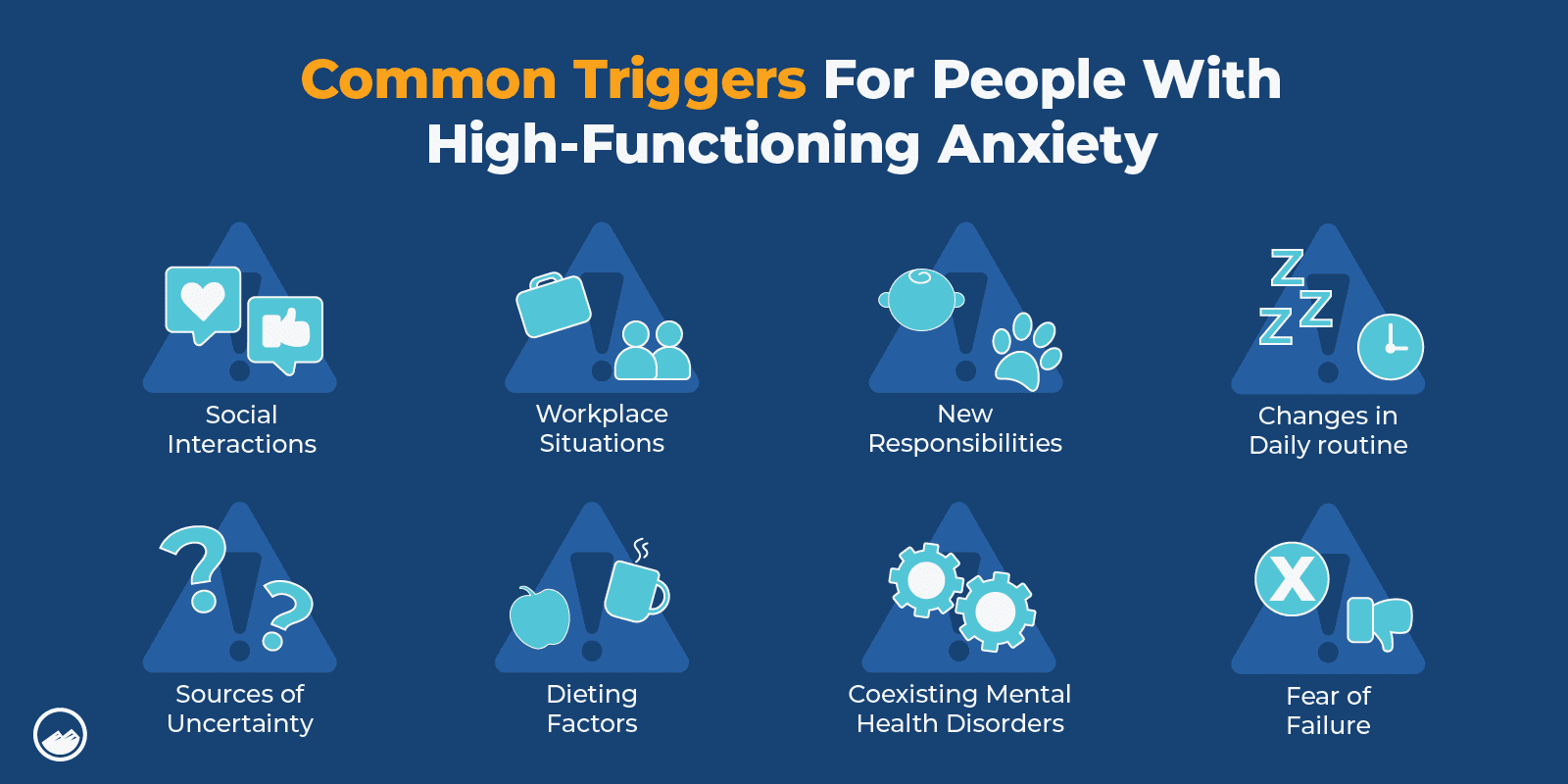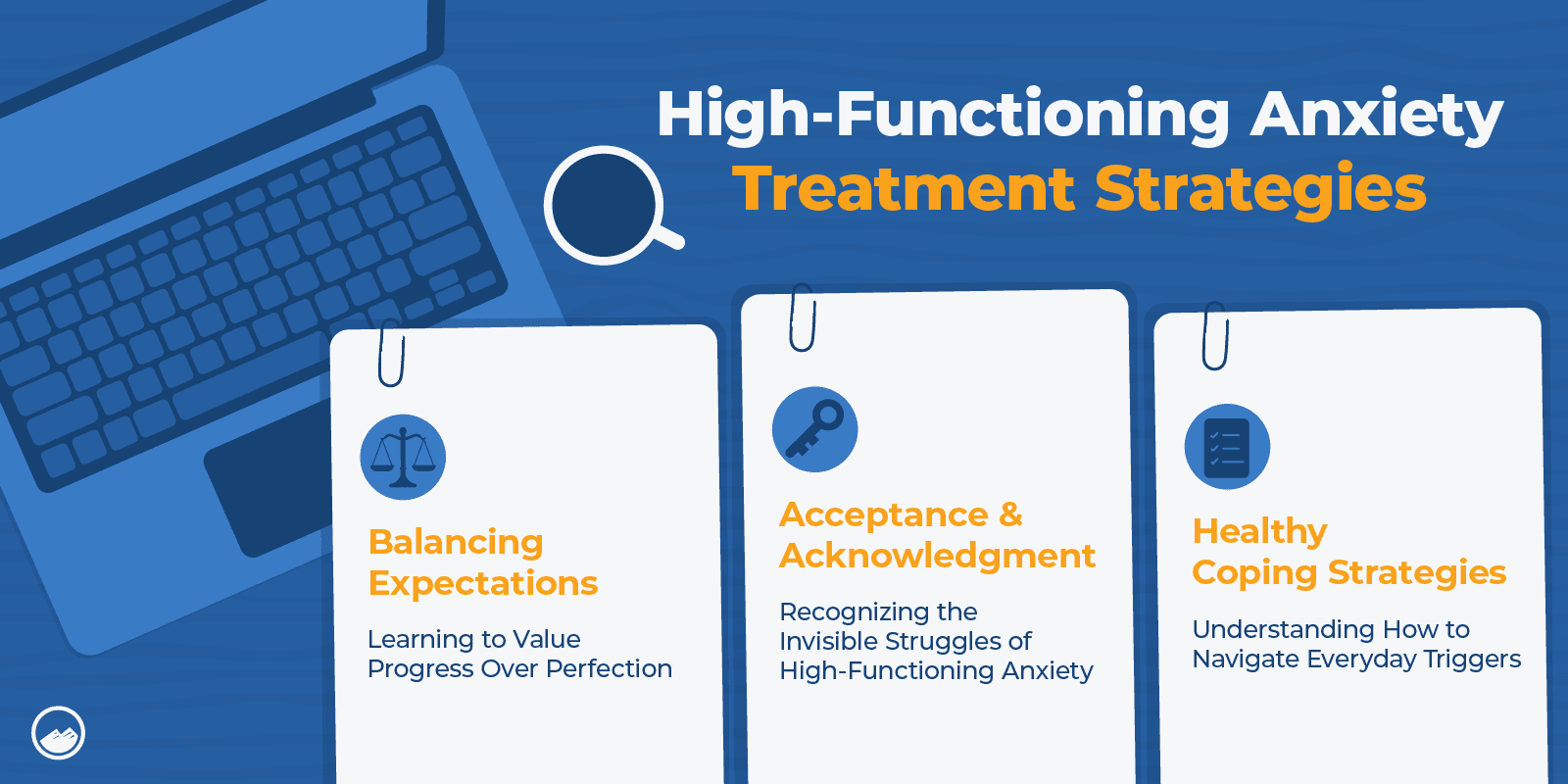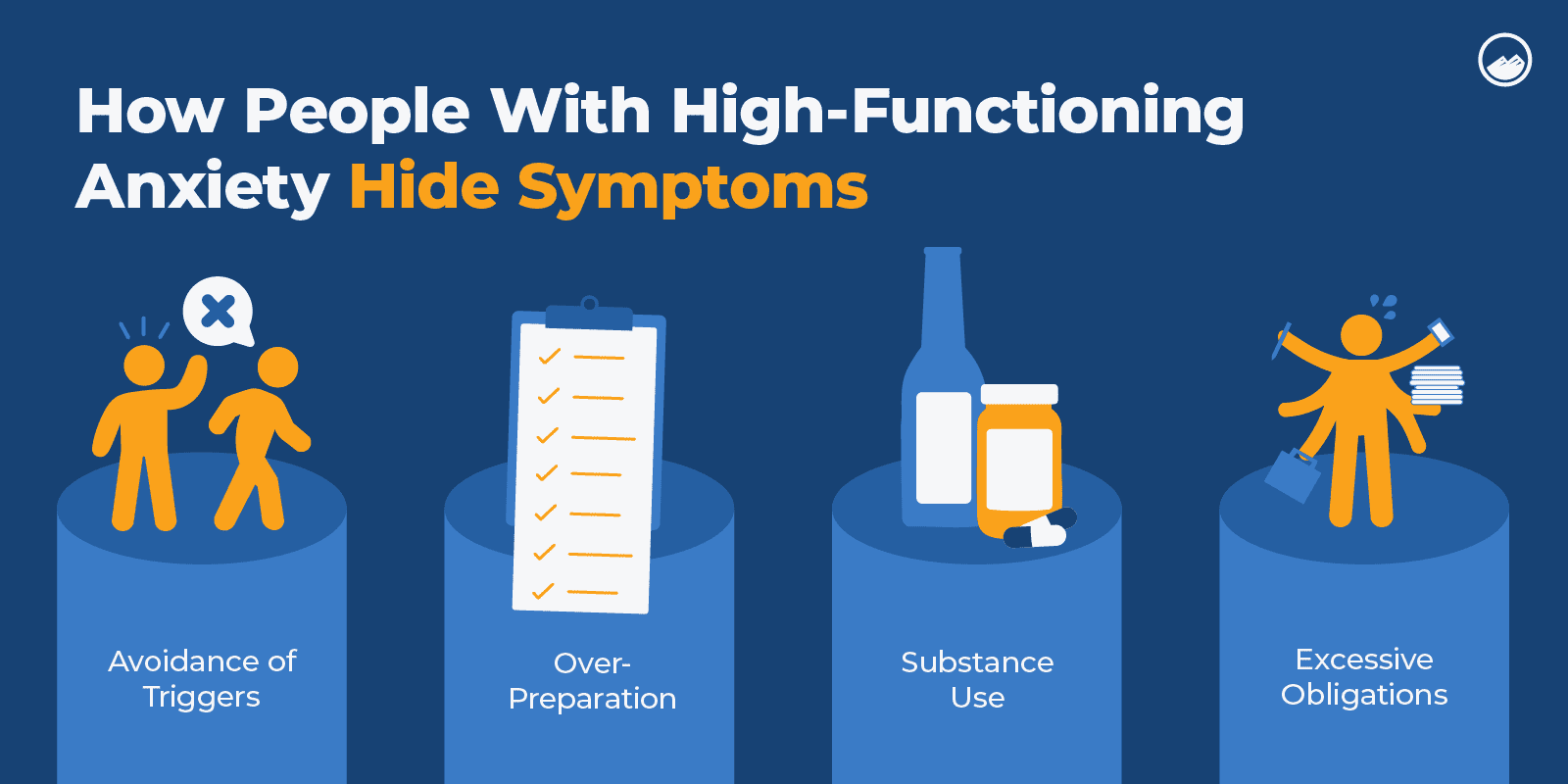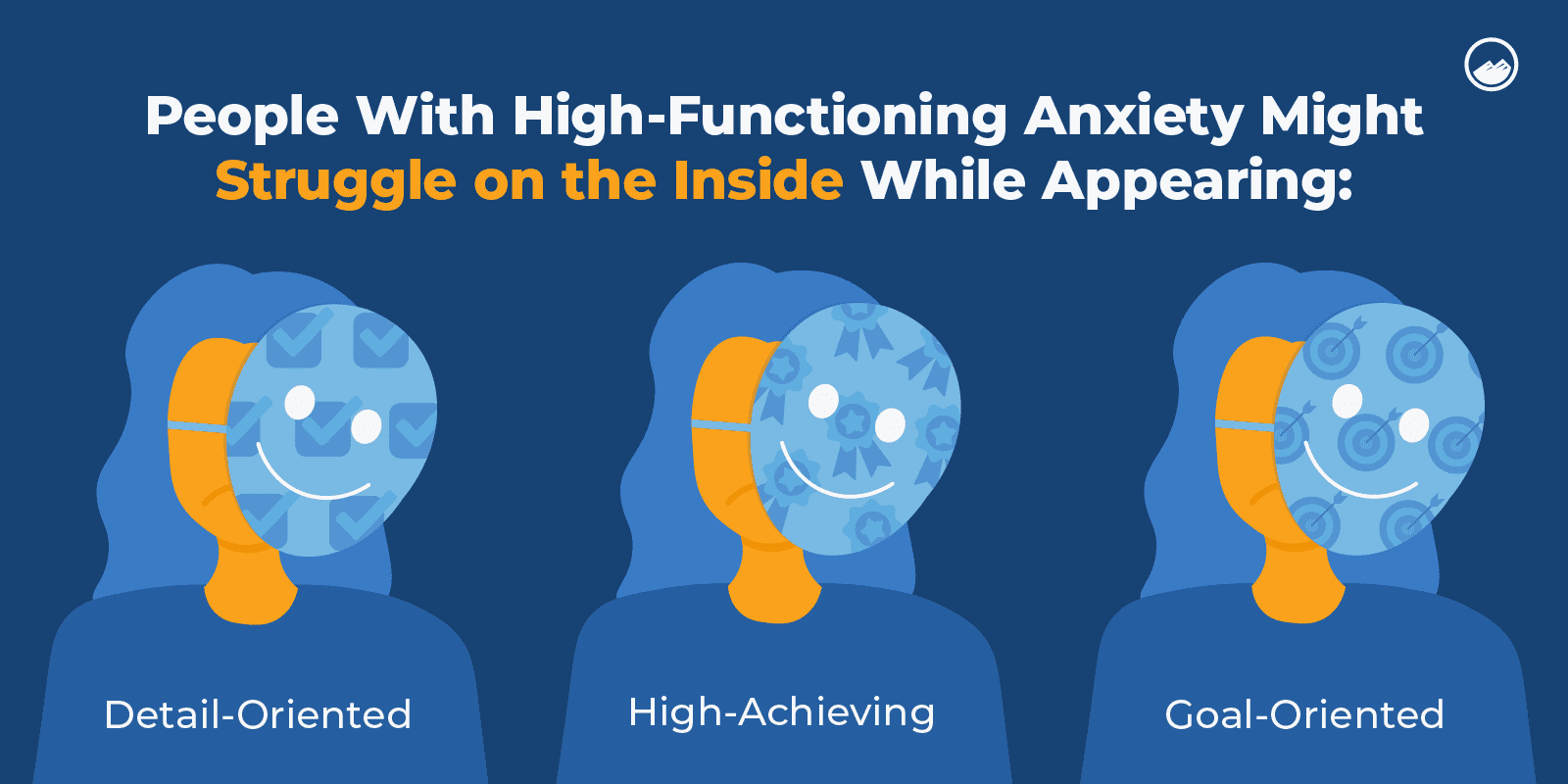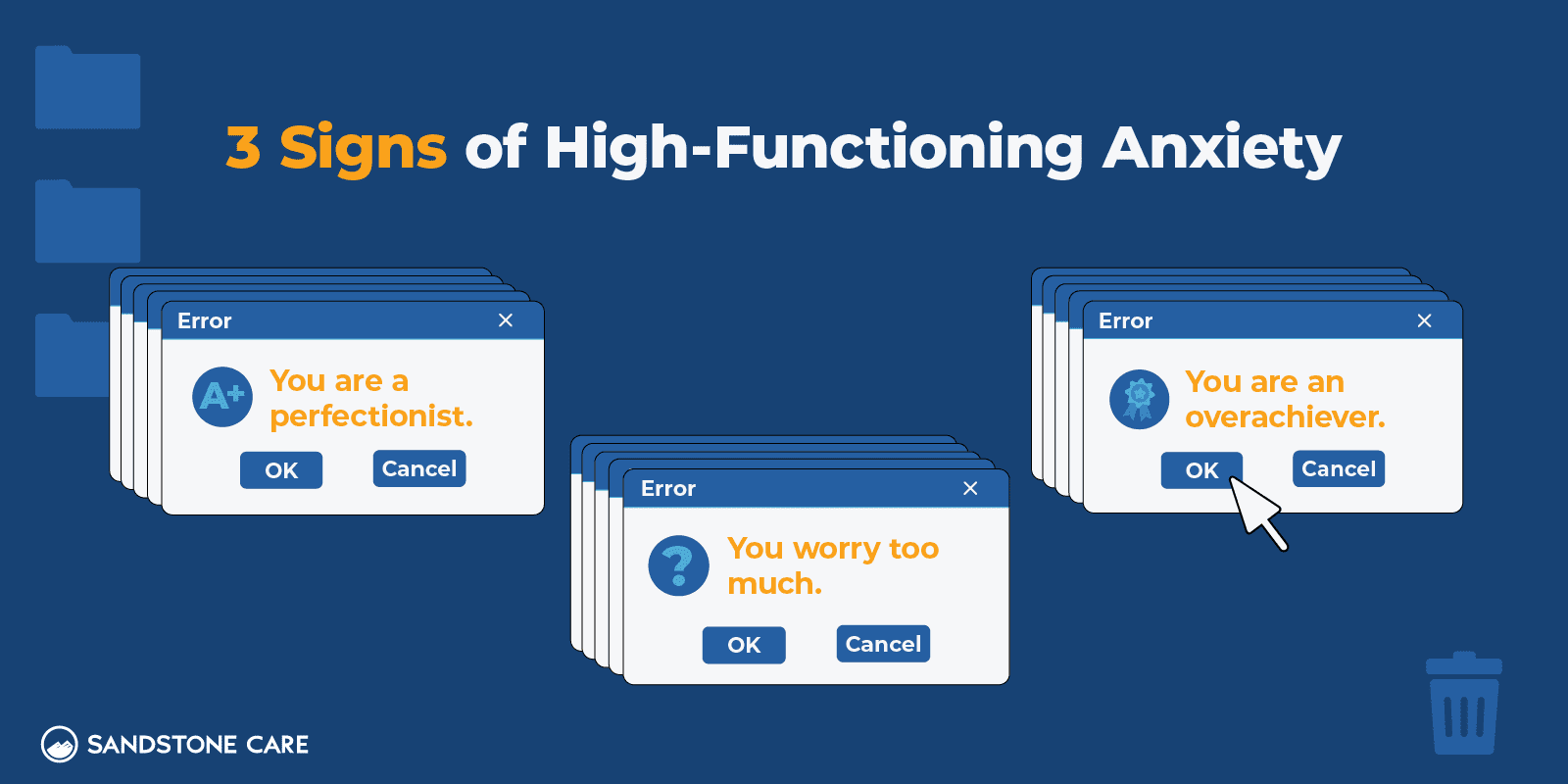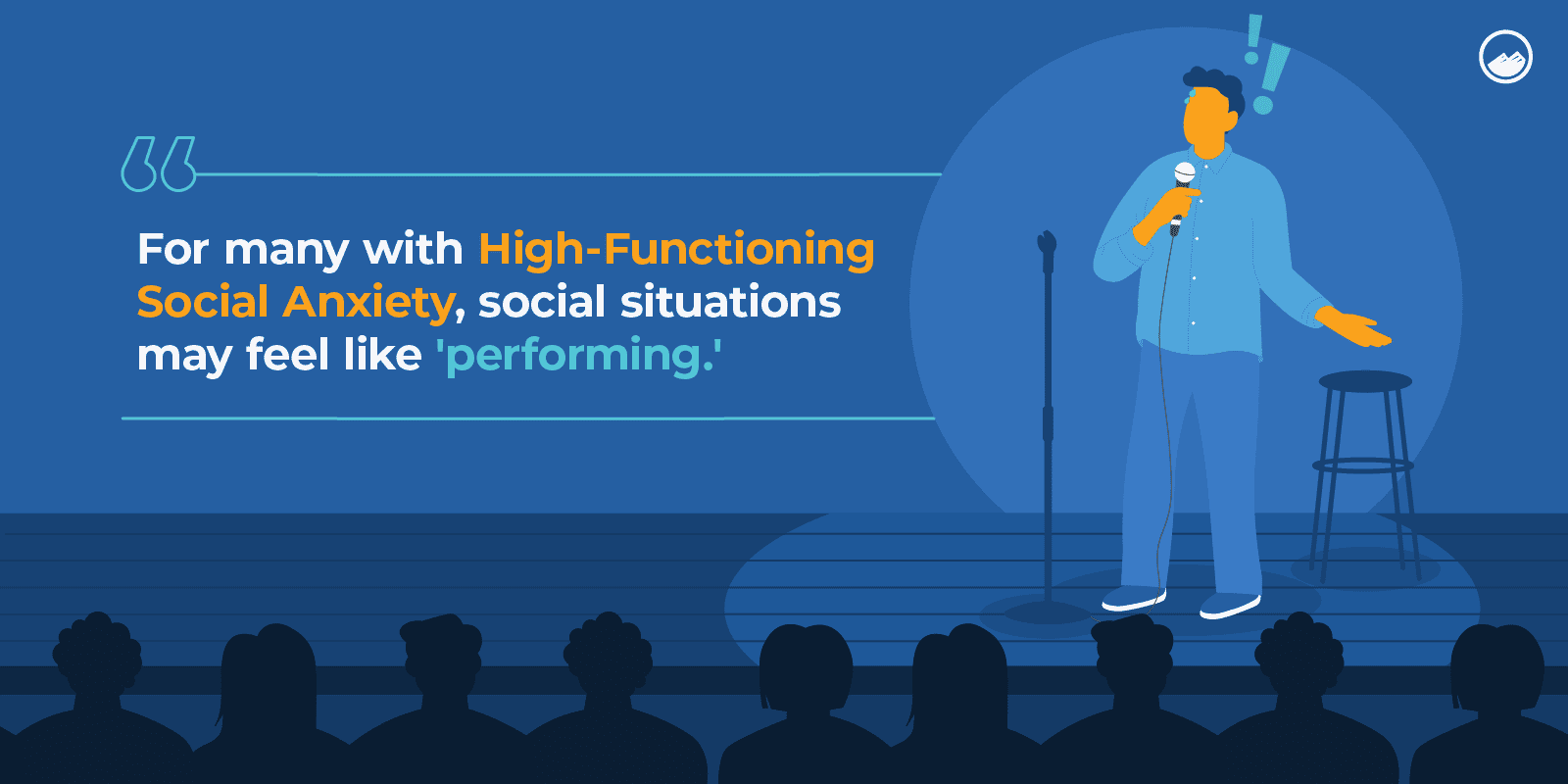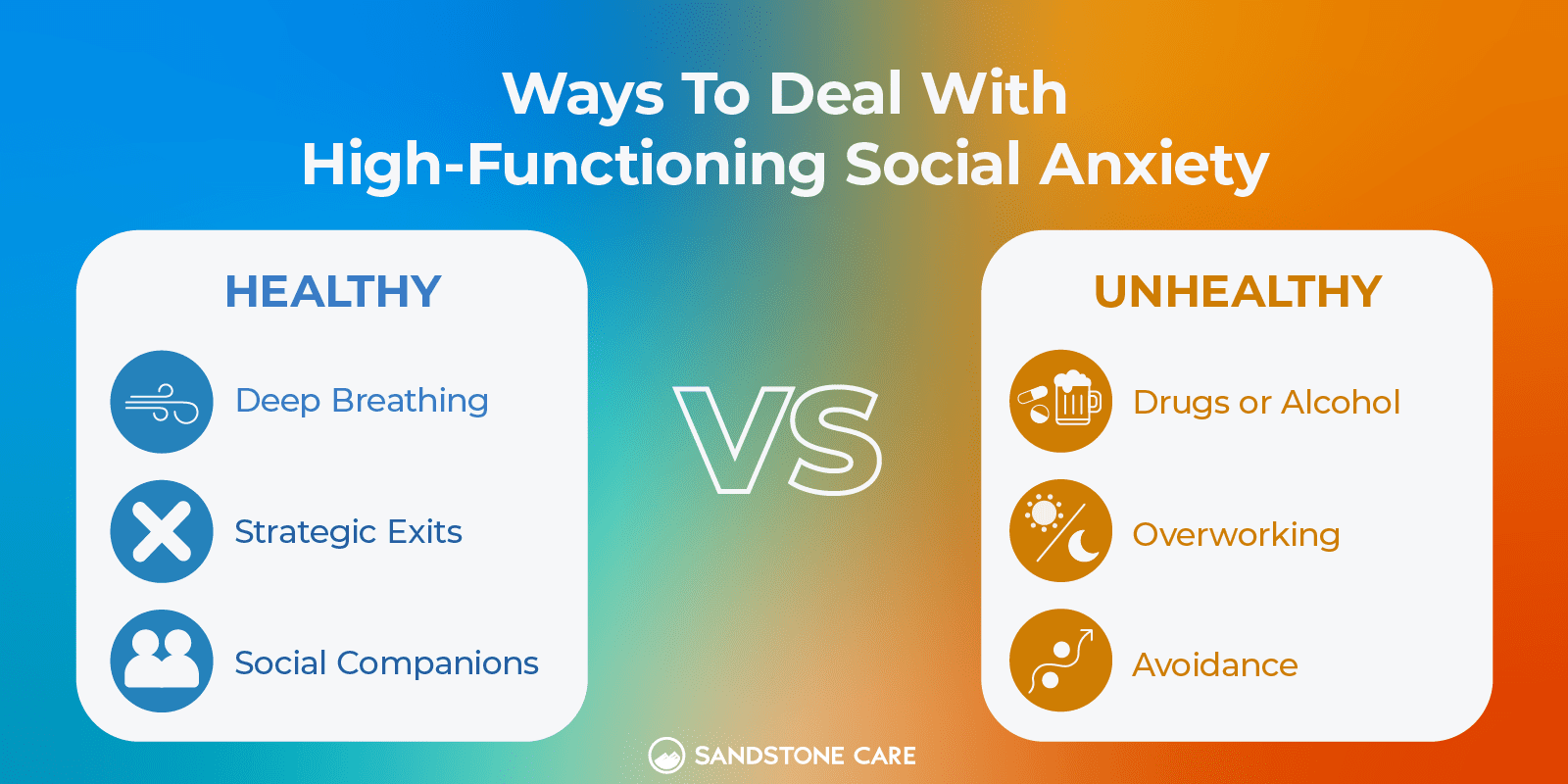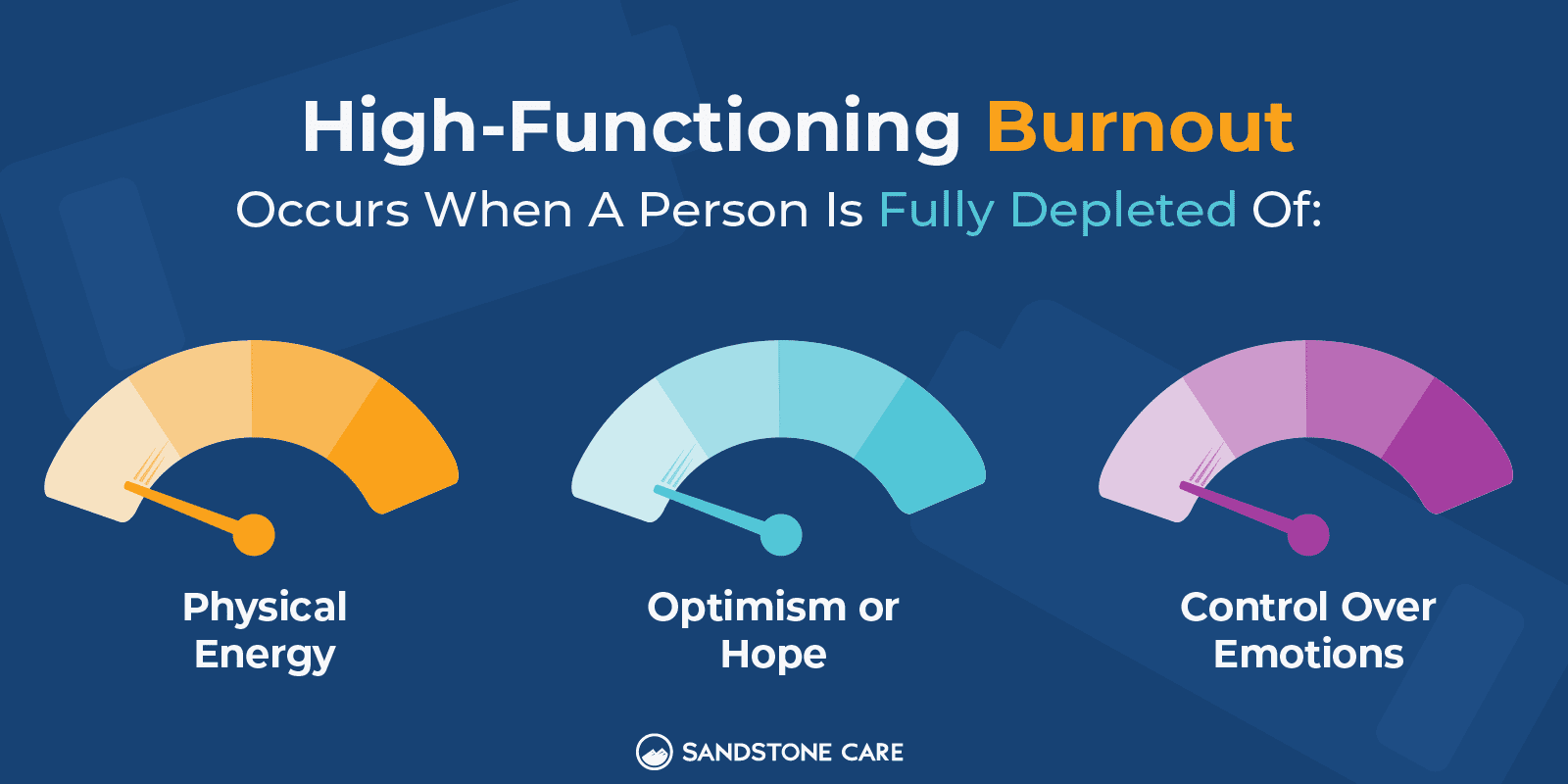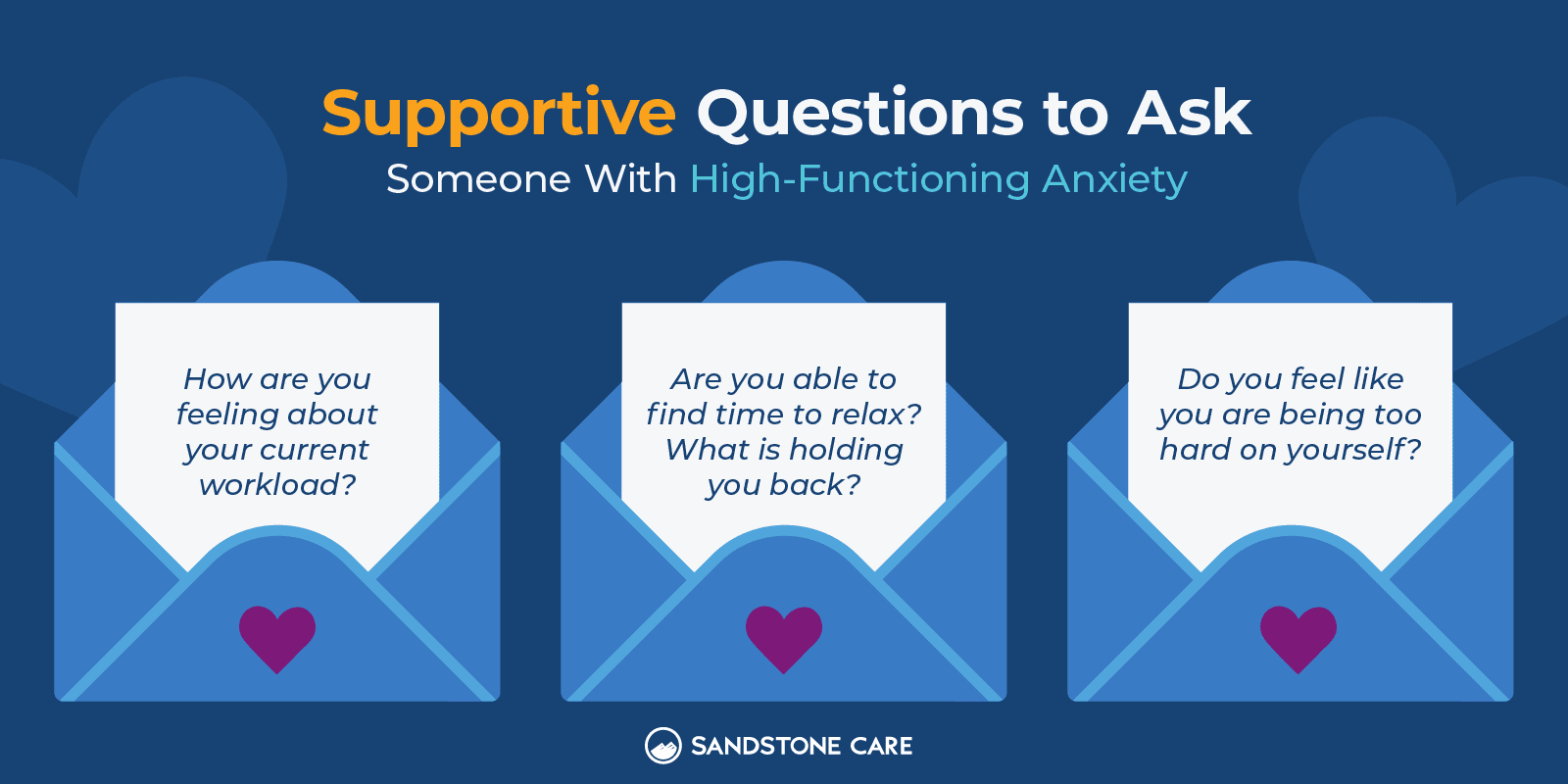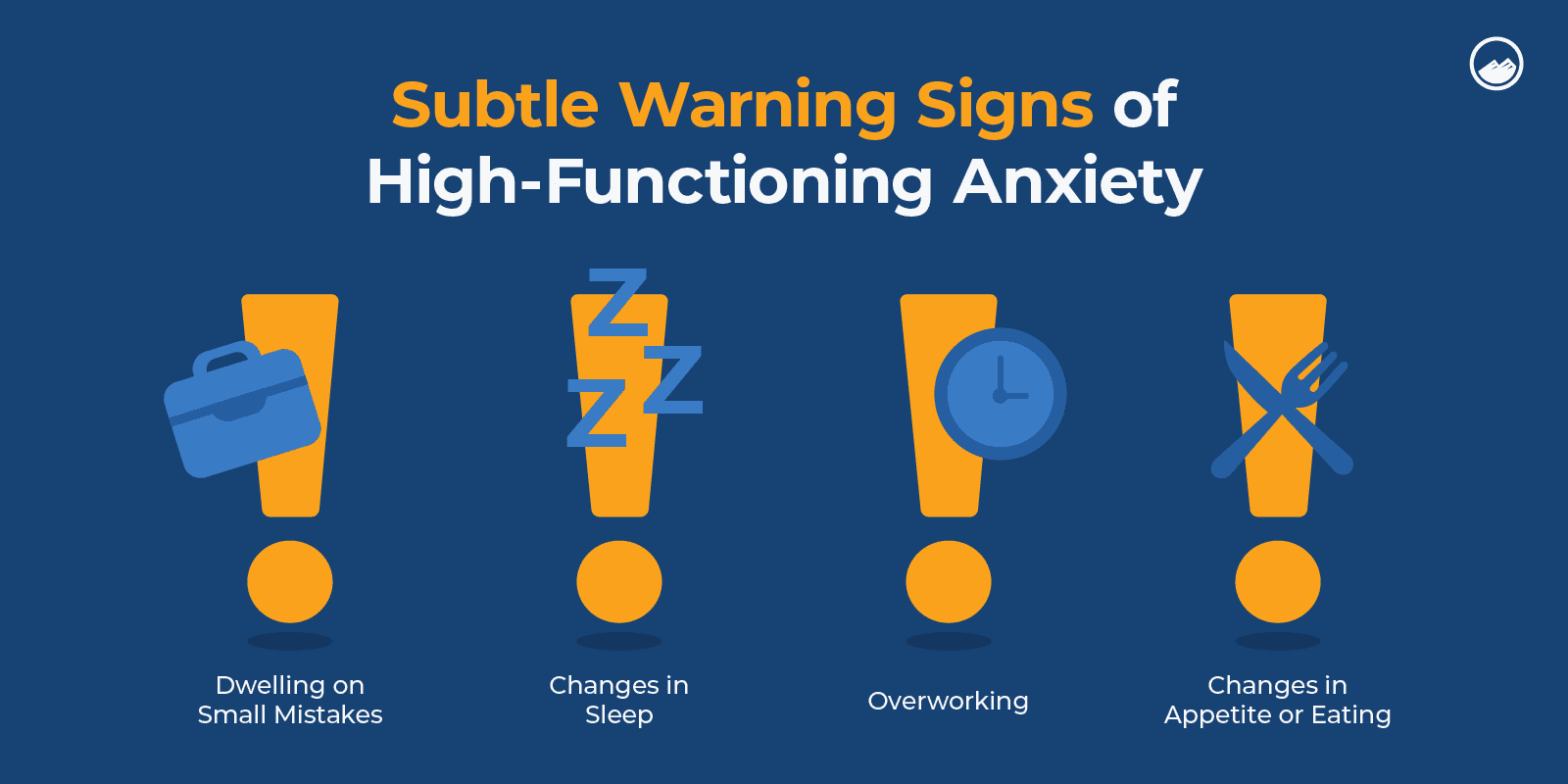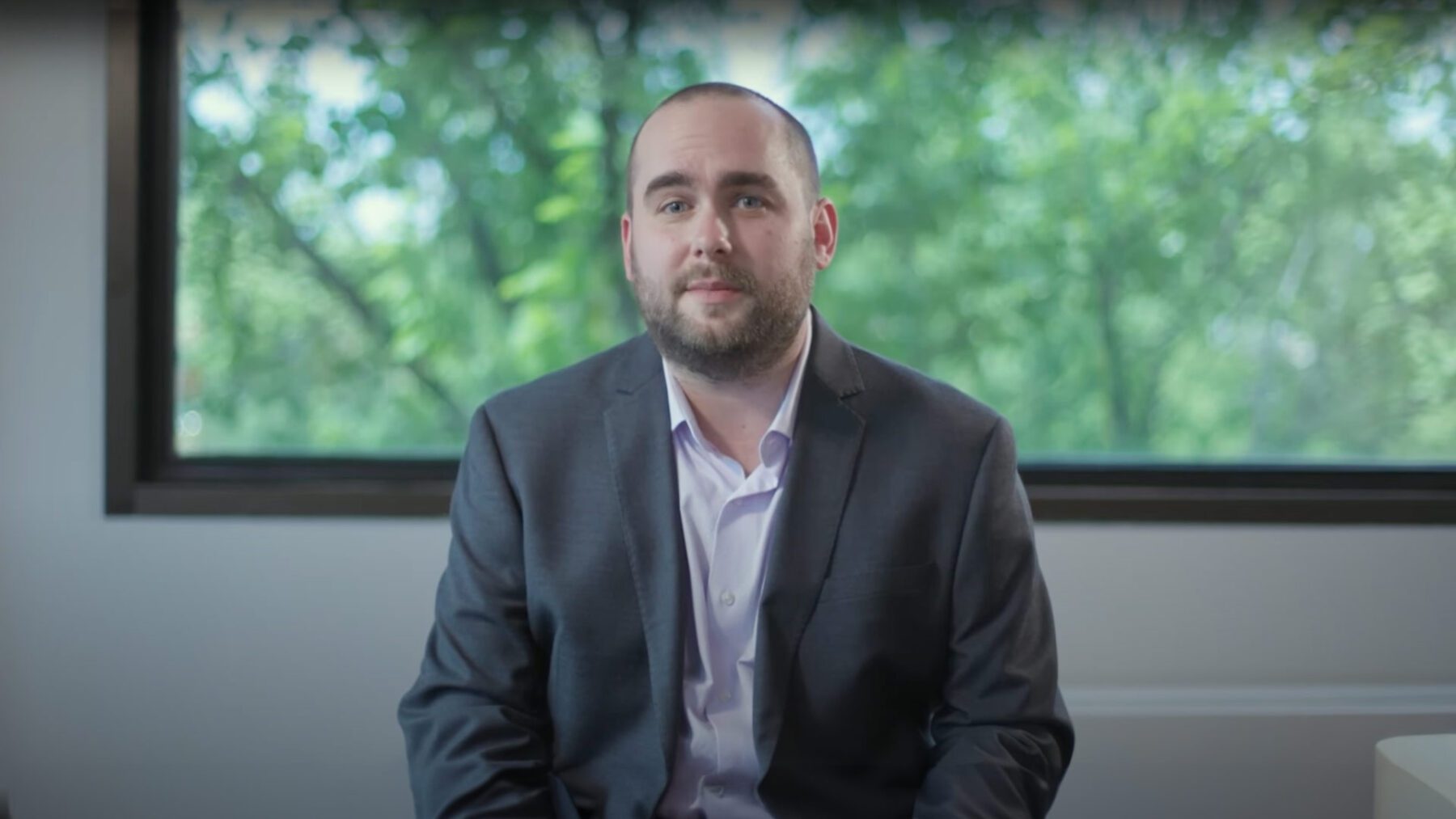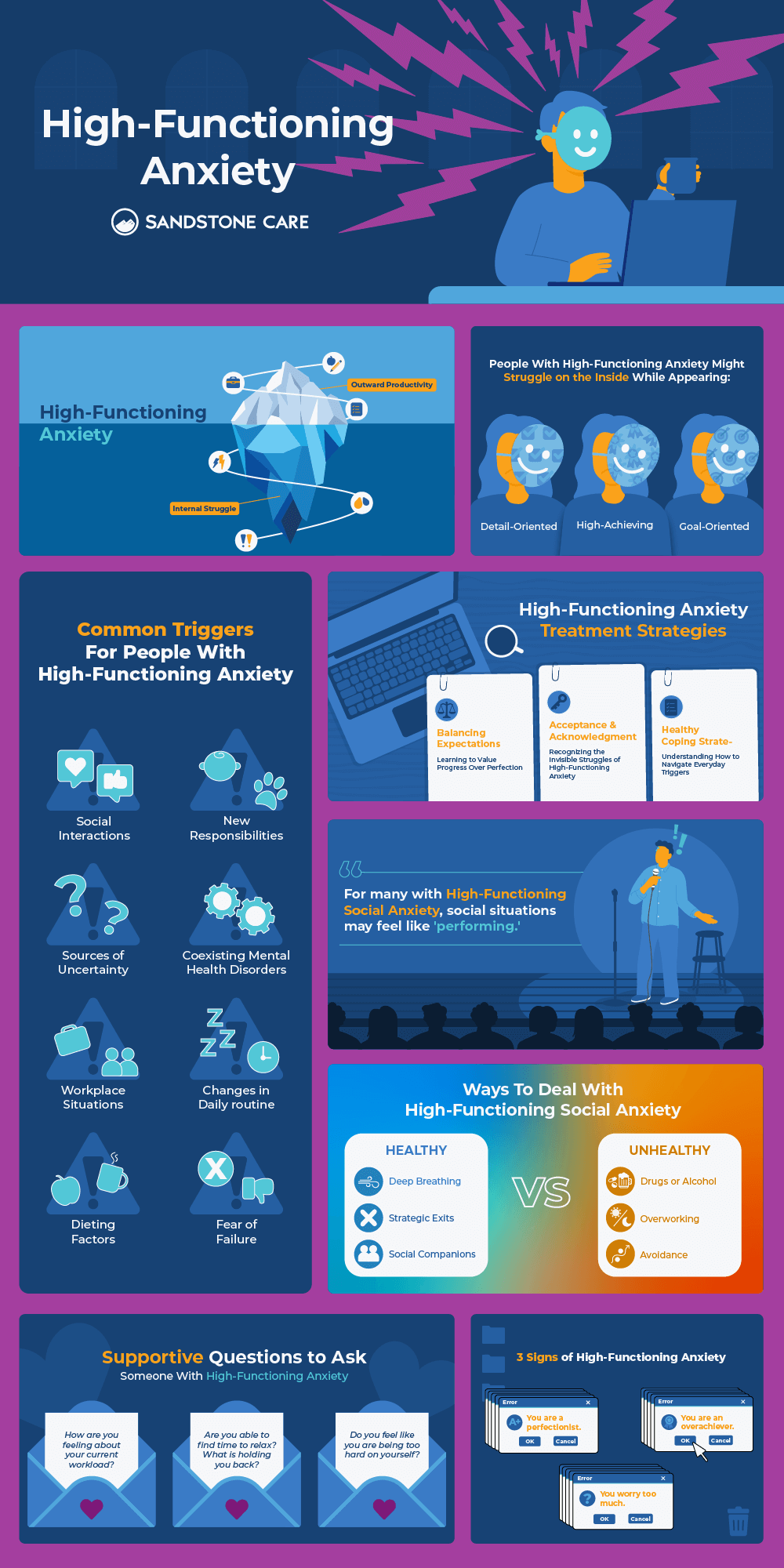High-Functioning Anxiety
Anxiety comes in many forms and affects each person differently. High-functioning anxiety may be less noticeable than other types of anxiety, but that does not make it any less difficult.
This form of anxiety still demands professional care and dedicated strategies to begin healing.
What Is High-Functioning Anxiety?
High-functioning anxiety is when someone seems successful and composed on the outside while experiencing the effects of generalized anxiety disorder.
Even though this form of anxiety is “high-functioning,” it is still painful to deal with. Many people who experience high-functioning anxiety may be skilled at hiding the emotional and physical symptoms of their anxiety disorder from others.
Someone with this level of anxiety will continue to experience the effects of the anxiety disorder while fulfilling their personal and professional obligations.
Is High-Functioning Anxiety Real?
High-functioning anxiety is a form of anxiety that is not yet recognized in the diagnostic and statistical manual of mental disorders (DSM-5.)
However, that does not mean that those experiencing high-functioning anxiety are not still experiencing anxiety or generalized anxiety disorder.
What Triggers High-Functioning Anxiety?
Some of the triggers of high-functioning anxiety include:
- Professional workplace situations
- Social interactions
- Fear of failure
- New responsibilities
- Changes in daily routine or expectations
- Competitive atmospheres
Each of these situations can seriously affect the mental health of those with high-functioning anxiety. However, it’s important to note that the effects of that anxiety might not be obvious on the outside.
Other triggers include anything that causes uncertainty, the presence of other mental health disorders, confrontation, and even dieting factors like drinking too much caffeine.
How Long Does High-Functioning Anxiety Last?
Episodes of high-functioning anxiety can persist for as long as there are still stresses or triggers present.
However, for those experiencing this kind of anxiety, continuing to hide the symptoms of anxiety in daily life can make the suffering last even longer.
Many with high-functioning anxiety may continue to feel panicked even when they are resting since their emotions have nowhere to go. Strategies such as journaling and therapy help provide outlets for these feelings, which can shorten episodes of high-functioning anxiety.
Is High-Functioning Anxiety a Mental Illness?
While high-functioning anxiety is not yet recognized in the DSM-5, it is still a subset of generalized anxiety disorder and should be treated with the support and professional care needed to overcome its effects.
What Is Another Name For High-Functioning Anxiety?
High-functioning anxiety is often diagnosed as generalized anxiety disorder and can be treated in similar ways as other anxiety conditions.
However, treatment plans to address anxiety in daily life should be personalized to address each person’s unique situation and risk factors.
What Is the Difference Between Anxiety and High-Functioning Anxiety?
Anxiety disorders take many forms and can often be debilitating in daily life.
Pervasive feelings of anxiety, worry, and even panic can make it difficult to fulfill social, professional, or personal responsibilities.
However, those living with high-functioning anxiety may be able to still tend to these responsibilities and cover up the symptoms of anxiety for a time.
Since high-functioning anxiety focuses on hiding symptoms, those with the condition often go without emotional support and take longer to reach out for help.
Signs of High-Functioning Anxiety
What Does High-Functioning Anxiety Look Like?
High-functioning anxiety can be difficult to spot since those suffering from it are skilled at hiding their symptoms. However, there are some common signs to look for.
These signs include:
- Persistent expressions or feelings of worry, even about unlikely events
- Pervasive feelings of doubt or guilt
- Perfectionism
- Thinking in absolutes or jumping to the most destructive of outcomes despite how improbable
- Panic or panic attacks
- Elevated heart rate
- Emotionally stressed in daily life
- Muscle tension
- Significant personal phobias
- Sensitive to criticism
Despite these symptoms, some may look very successful to those around them.
From the outside, those with high-functioning anxiety may seem:
- Highly detail-oriented
- High-achieving in their personal and professional ventures
- Goal-oriented and punctual
While there is nothing wrong with these traits in general, the fear that motivates these behaviors can seriously impact the anxious person’s quality of life.
What Are the Signs of High-Functioning Anxiety?
High-functioning anxiety can manifest differently in different people. However, being aware of the common symptoms of high-functioning anxiety can help you to identify it in yourself or others.
These signs include:
- Elevated heart rate, even in calm environments
- Racing thoughts or rumination on past events
- Fear of failure despite often meeting goals
- Panic attacks or panic disorders that are hidden from others
What Are 3 Signs of High-Functioning Anxiety?
The three most common signs of high-functioning anxiety are:
- Persistent Worry
Despite seeming like they have everything under control, individuals with high-functioning anxiety often internally experience relentless and excessive worrying about their relationships, career, and identity. - Perfectionism
Those with high-functioning anxiety often hold themselves to exceedingly high standards, even without others asking it of them. They may obsess over minor details and fixate on projects for long periods. - Overachievement
Despite their internal struggles, those with high-functioning anxiety frequently excel in their professional and personal lives. This success is propelled by a fear of failure or disappointing others, which can exacerbate their anxiety.
Do I Have High-Functioning Anxiety?
Since high-functioning anxiety focuses on masking symptoms, it can be difficult to identify, even in yourself. This is especially challenging because other people may be praising you for your successes even when your relationship with your goals is unhealthy.
If you often feel constantly worried, strive for perfection, and push yourself hard despite feeling tense inside, you might have high-functioning anxiety.
It’s best to talk to a therapist or counselor for a proper evaluation, diagnosis, and treatment.
High-Functioning Social Anxiety
What Is High-Functioning Social Anxiety?
High-functioning social anxiety occurs when people with social anxiety disorder can seemingly succeed at social interactions, but inside they experience stress, discomfort, and fear.
An individual with high-functioning social anxiety may not necessarily seek out social gatherings or functions but, when put in these situations, may appear amicable and social.
However, they may still be harboring intense fear, panic, worry, or fear of being judged.
For many, these social situations may also feel like “performing.” They may even come across as talkative. However, this isn’t necessarily because an individual is overly social, but rather feels a compulsive need to control the social situation to avoid potentially embarrassing situations.
How Do You Deal With High-Functioning Social Anxiety?
Addressing and overcoming high-functioning social anxiety is difficult, especially since it is built around burying your struggles. However, having friends attend social events with you, planning exit strategies, and deep breathing can help.
Recognizing the signs is the first step toward overcoming its effects.
For some, ensuring that there are trusted friends, family, and support at social events can help to quell feelings of anxiety. Others may plan ahead to control how long they attend a function and use an exit strategy if feelings of anxiety continue to elevate.
Employing a variety of coping strategies like deep breathing techniques and engaging in effective self-care outside of social events can all help a person tend to their physical and emotional well-being while providing an outlet for anxious feelings to process and release.
Likewise, those with high-functioning social anxiety may also utilize drugs or alcohol to function in social situations, which can develop into a dangerous relationship with addictive substances that may also need to be professionally addressed.
Working with dedicated mental health professionals to address feelings like fear of embarrassment or feeling as if a person is being watched or judged is also essential. Sandstone Care is available to help each person pursue their wellness and overcome these mental health conditions and their effects in day-to-day life.
High-Functioning Anxiety and Depression
High-functioning anxiety and depression are often related, but addressing the symptoms of both anxiety and depression in tandem can be difficult to do alone.
Feelings of anxiety can often cause feelings of depression and vice-versa, making them intimately connected.
Dedicated professional help may be necessary to address these challenges as well as prevent the manifestation of unhealthy coping strategies that may otherwise negatively impact each person’s mental and physical health.
What Is it Like to Have High-Functioning Anxiety and Depression?
Those with both high-functioning anxiety and depression can have their mental health greatly affected, moving from feelings of anxiety and panic to great episodes of doubt, guilt, shame, and persistent low mood.
The fear of failure and self-doubt that comes from high-functioning anxiety can cause depression as they think less and less of themselves. They may begin to believe that they are a “failure.”
This can be worsened by perfectionism. When a person sets unrealistic expectations, they may feel great shame or depression when these goals are inevitably not met.
The perpetual cycle of self-doubt, guilt, fear of failure, and then setting oneself up for disappointment can be exceptionally difficult to overcome without professional support.
What Is High-Functioning Burnout?
Burnout is the emotional, physical, and mental fatigue resulting from intense pressure to succeed and hide symptoms without spending enough time on self-care.
High-functioning burnout describes the situation where an individual will still be tending to their responsibilities despite being exhausted.
They may continue to go to work but notice an increase in physical fatigue, mood swings, resentment, and hopelessness. These symptoms will happen even when they are successful in their goals.
Individuals with high-functioning burnout may feel mentally and emotionally detached from their responsibilities as well, even while working with them. Those with high-functioning anxiety can reach burnout very quickly since their efforts to make things “perfect” can be exhausting.
How to Support Someone with High-Functioning Anxiety
Some things you can do to support someone with high-functioning anxiety include:
- Assure them that they can open up to you and that you will not judge them
- Avoid pressuring them to excel and remind them that they don’t have to be perfect to be valuable
- Offer to help them find the time to take care of themselves when you notice that they are hiding that they are overwhelmed
Healing is rarely done in a vacuum, and providing a healthy support system for your loved one can help them feel better about opening up.
How Can You Tell If Someone Has High-Functioning Anxiety?
High-functioning anxiety can be difficult to identify, largely because those who are living with high-functioning anxiety in day-to-day life may mask their feelings behind other guises.
However, there are ways to determine if a person is living with high-functioning anxiety. Some of the potential symptoms in others can include:
- Goal-oriented, especially if these goals seem grandiose
- Incredibly detail-oriented
- Perfectionism
- Fear of failure
- Expressions of self-doubt, even in the fact of success or reaching set goals
- Overthinking social, professional, or personal situations
- Difficulty receiving criticism or seeing any perceived criticism as a “failure.”
Noticing any of these signs can be a reason to ask loved ones or family members about how they feel or contact mental health professionals to get more information on high-functioning anxiety and potential treatment options to best support loved ones.
What Not to Say to Someone With High-Functioning Anxiety?
Those with high-functioning anxiety can be afraid of criticism, and even well-meaning or innocuous comments can cause them severe stress.
Avoid comments like “it’s fine” or “it’s alright” about their accomplishments. Even referring to things they could do better regarding small things like chores around the house, can be difficult to hear for those with high-functioning anxiety. This is because “fine” is not “perfect” and can lead to feelings of failure and hopelessness.
Other things to avoid saying to someone with high-functioning anxiety include comments like “it’s not a big deal” or “just get over it” when they express their anxieties. Since people with high-functioning anxiety are already prone to hiding their feelings, dismissing their concerns can cause them to close off even more.
How Do You Love Someone With High-Functioning Anxiety?
Loving someone with high-functioning anxiety can be challenging at times, and their partner may need additional support from time to time to address these feelings.
Some strategies include:
- Taking small concerns seriously
- Being willing to reiterate and reassure loved ones in times of stress, even if one does not understand the stress themselves
- Providing emotional support
- Encouraging self-care routines and establishing your own self-care routines
- Working with professionals to better understand high-functioning anxiety
Making an effort to practice effective communication strategies and listen to the concerns of those with high-functioning anxiety while encouraging a safe space can all help to further these relationships and develop trust and unity in the relationship.
Those with high-functioning anxiety can still live normal lives with successful professional careers and relationships. However, partners of those with this form of anxiety may have to address these feelings for a successful relationship.
How Do You Fix High-Functioning Anxiety?
High-functioning anxiety can be effectively addressed through a combination of strategies such as therapy, mindfulness, support groups, and medication.
Cognitive-behavioral therapy (CBT), psychiatry, psychotherapy, medication, and support groups can all help with anxiety. They challenge anxious thoughts, promote mindfulness, and offer new perspectives on daily life.
Can High-Functioning Anxiety Be Cured?
It is always possible to address and overcome the effects of high-functioning anxiety, but that does not mean you will never feel anxious again.
Treatment can be effective at instilling the necessary lifestyle changes, as well as changes in mindset and perspective, to address anxiety.
What Medication Is Best For High-Functioning Anxiety?
Typically, selective serotonin reuptake inhibitors, or SSRIs, are prescribed to address high-functioning anxiety.
However, no medication will be effective without combining it with effective therapy and support, with support groups and mental health professionals still necessary to truly address high-functioning anxiety.


